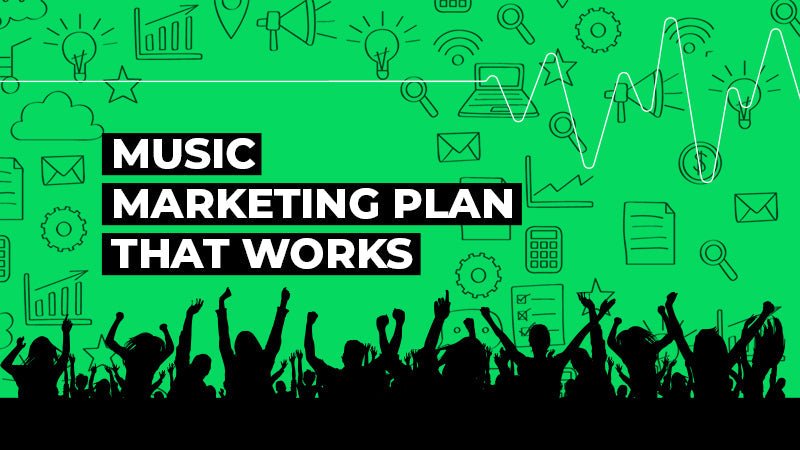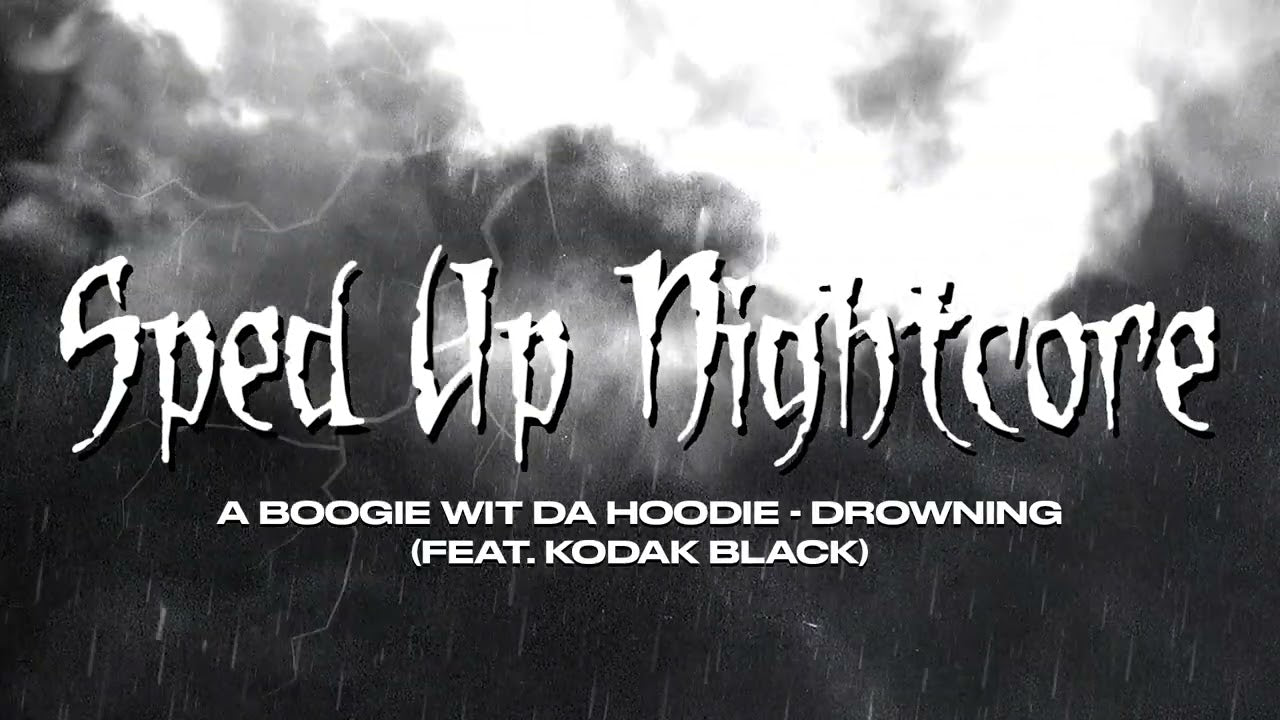1. You own your copyright already
Lots of new recording artists are afraid of someone stealing their songs. They don’t want to release the track until they’ve copyrighted their music.
But the truth is, when you consider that thousands of new tracks are released every day, copyright infringement is comparatively rare. Of course you should still register your copyright, but don’t let that process slow you down from releasing music.
Modern music production and copyright registration move at very different speeds. Releasing music is the fast lane. Registering copyright is the slow lane.
Again, I’m not saying you shouldn’t protect your music. You absolutely should. But don’t delay your release plans for fear of copyright infringement. Because if you’ve written down your lyrics, recorded a demo, or completed the track, you own the copyright to your music already!
Registering your copyright with the Library of Congress provides significant benefits if you have to take someone to court. While that application process is quick, you could be waiting nine months for your registration to be approved. Don’t lose steam just because you’re afraid someone will steal your music. Get your songs out there.
2. Don’t put the acronyms before the horse
There’s always some music industry veteran out there warning newbies that they need to affiliate themselves with some particular association before they’re a REAL recording artist or songwriter. Telling you that you shouldn’t take any steps to release your music until you’re affiliated with ASCAP, BMI, SESAC, the MLC, the Recording Academy, the local union, the state songwriter society, SoundExchange,…
The list is long.
That list is also full of extremely valuable services for artists and songwriters, and you SHOULD affiliate with some of them! But let’s remember that many of those organizations are tasked with collecting royalties for music that is already available — the songs are out there in the world being heard, used, streamed, played, placed, and performed.
So the problem isn’t that the “helpful” industry veteran above is scamming you as a newbie, or leading you astray. It’s that so much emphasis is put on these various organizations (who probably all sound the same to you because most of them are just acronyms), that you, the hopeful recording artist, get intimidated. You start worrying that you can’t proceed until you have a full understanding of various realms of the music industry.
Again, don’t get me wrong: Understanding your rights, how they’re monetized, and what services help you collect royalties is important. But the reason those services exist is to do the work for you. You don’t need to know the finer details of mechanical royalty flow in order to get affiliated with an entity whose entire mission is to take care of all that stuff for you.
3. Your distributor makes things manageable
Speaking of music distribution, you’ll need it.
It’s the process of getting your music onto multiple platforms around the world. Sound complicated and expensive?
It’s not. Basically, you sign up your music with one service (hopefully Organic Music Distro!), and we deliver your tracks all over the world — to 150+ music platforms, including Spotify, TikTok, YouTube Music, Apple Music, Amazon Music, Deezer, Pandora, and so many more.
Well, I should restate what I said above: It IS complicated.
Just not for you. Organic Music Distro handles all the file formatting and deliveries, we collects your royalties, and we pay it all to you in one simple dashboard. For the same one-time fee, we also include sync licensing, social video monetization, and more.
Those are additional opportunities for your music that we provide as part of our standard service. But as with all the other advice I’ve given, you’ll learn as you go. Just like any other new pursuit. So don’t assume you need to become an expert in things like sync licensing or YouTube Content ID before you release your music.
4. No one will hear your music simply because it’s available
One thing that is a bummer to hear, but absolutely crucial for you to understand upfront, is that no one will care about your new music until you make them care.
The arrival of a new song isn’t special. I mean, of course it’s special to YOU; but some reports say that 60k new songs are released every day. Imagine that! All the work and talent you put into your new music… 60k other musicians did the same thing today?
The availability of your music, while something worth celebrating, is not an indicator of success. You have to put in extra work, find your music marketing edge, tell a compelling story, and make people care. Only then will they interrupt their day to press play and listen to the music.
THIS is the primary thing artists should be concerned about when releasing new songs: attracting listeners and gaining momentum.
And while we always have high hopes for our new music, we’re never gonna dig into the hard work of actually BUILDING an audience if we hold onto the naive assumption that people will automatically notice and care.
5. You are a label
This is another way of stating what I’ve said above, but YOU are ultimately responsible for your music’s performance in the marketplace. And yes, it’s a marketplace. With a rapidly-increasing supply of music to meet an increasingly limited amount of audience attention, this is no easy task.
A label’s job is to fund, guide, and assist the artist. If you don’t have a label, you are your OWN label. And a label is a business, with a budget, a network of connections, and a strategy. As an artist, you provide the spark, the voice, the story. As a label, you provide the plan, the effort, and maybe even monetary investment.
To be successful, you’re gonna have to either wear both hats (label owner and artist) or build a trusted team of experts around your music. Both approaches will have pros and cons, but remember: you’re the label. You’re the CEO of your music career. You’re in charge. No one else is going to swoop in and make you a star until you’ve already proven to be an artist (and business) worth their time, attention, and capital.
Don’t wait around hoping to get anointed by kingmakers, tastemakers, big brands, cool blogs, or hot playlists. Get started today finding your own path to success. Once you do, all those power players will suddenly be in your corner.
6. Chasing vanity metrics can hurt you
We think numbers — especially the numbers associated with our online presence (streams, views, followers, etc.) — are super important. They tell the world we’re either cool or a loser.
Right?
Wrong. There is such a thing as empty streams, useless views, and so forth. A number for its own sake is a “vanity metric.”
Vanity metrics say nothing about the depth of your audience’s connection with your content and songs. It only says that someone consumed some portion of what you’ve put out there.
When you’re just starting out, it’s crucial to find your TRUE fans, so that over time you can teach the various platforms how to get your songs and videos in front of more people who share those interests.
Chasing vanity metrics can lead new artists to hire unscrupulous services to pump their streams and views. But they’re not real fans. In some cases, they’re not even real humans.
Indifferent listeners and bot farms? Bad.
A small audience that loves everything you create and wants to hear your songs again and again? Great! That’s the foundation you want to build.
Quality over quantity. Or rather, first quality engagement; then that can lead to quantity as well.
7. You can’t build a team until you’ve build your own career
If strangers are writing you early-on and offering services, success, fame — they’re probably scammers.
The most reputable booking agents, publicists, labels, promoters…. they’re not cold-calling artists out of the blue.
Most often, you will have to find them. Go to them. Pitch your music and story to them. And they’ll only say yes IF you’ve already built something impressive on your own.
So don’t fall for people promising you the world. Our dreams and our longing to feel validated,… it’s like chum in the water for sharks.
8. Success will look different than you imagined
The world changes fast. When you fell in love with music and imagined success, that might’ve been a year ago, or decades ago. Either way, what is possible TODAY is different from what was possible then.
Some of the changes are great, some present new challenges. But the point is, if you thought you’d be playing stadiums, maybe now you find yourself talking to your thousands of followers on TikTok instead.
If you thought you were going to be the lead singer of a band, maybe now you’re a great co-writer and producer instead.
Maybe you thought you’d tour the house-concert circuit, but circumstance has brought you to daily livestreams on Twitch instead.
Be adaptable. Just because you don’t hit the target you initially aimed for doesn’t mean you aren’t successful.
BONUS: Is it enough to just put your music on Soundcloud or Bandcamp?
Soundcloud and Bandcamp are amazing platforms. Super useful, with pretty dedicated users.
So you should absolutely make the most of them.
BUT… I’m always surprised how many new artists think it’s enough to simply park their new track on ONLY those platforms.
Meanwhile, 99% of the artist’s potential audience is elsewhere — because remember, the average music consumer is using Spotify, Apple Music, Amazon Music, TikTok, YouTube Music, Pandora, Deezer, etc.
So be everywhere. As we said in point number three above, making your music available everywhere isn’t hard.






Leave a comment
This site is protected by hCaptcha and the hCaptcha Privacy Policy and Terms of Service apply.